Baseball was contested at the 1935 Central American and Caribbean Games in San Salvador, El Salvador.
| Event | Gold | Silver | Bronze |
|---|---|---|---|
| Men's baseball | none |
Baseball was contested at the 1935 Central American and Caribbean Games in San Salvador, El Salvador.
| Event | Gold | Silver | Bronze |
|---|---|---|---|
| Men's baseball | none |

The El Salvador national football team represents El Salvador in international football, and is governed by the Salvadoran Football Federation (FESFUT).
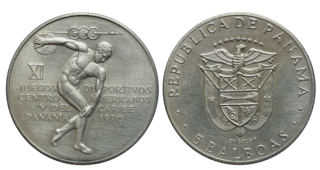
The Central American and Caribbean Games are a multi-sport regional championship event, held quadrennial, typically in the middle (even) year between Summer Olympics. The games are for countries in Central America, the Caribbean, Mexico, and the South American Caribbean countries of Colombia, Guyana, Suriname, and Venezuela.
The 2nd Central American and Caribbean Games were held in Havana, Cuba from 15 March to 5 April 1930. The event featured 596 athletes from nine nations, competing in ten sports. Women participated in the event for the first time.
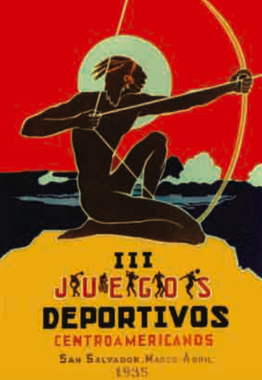
The 3rd Central American and Caribbean Games were held in San Salvador, El Salvador, from 16 March to 5 April 1935. The games featured 741 athletes from nine nations which competed in fourteen sports.
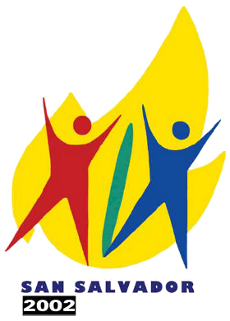
The 19th Central American and Caribbean Games were held in San Salvador, El Salvador from November 22 to December 8, 2002 and included 4,301 competitors from 31 nations, competing in 32 sports. The main stadium for these championships was the Estadio Nacional Flor Blanca.For political reasons,Cuba decided to boycott the event. Squash made its debut at the Central American and Caribbean Games.
The athletics competition at the 1935 Central American and Caribbean Games was held in San Salvador, El Salvador.

The track and field competition at the 2002 Central American and Caribbean Games was held at the Estadio Nacional Flor Blanca in San Salvador, El Salvador, between 1 and 6 December 2002. Results were reported and discussed in detail on a day-by-day basis.
The association football competition at the 2002 Central American and Caribbean Games was held between 23 November and 7 December 2007, although qualification took place beforehand. El Salvador, the tournament's host, drew with Mexico in the final 1–1, eventually defeating Mexico in a penalty shoot-out 4–3, winning its second title and the first title since 1954.
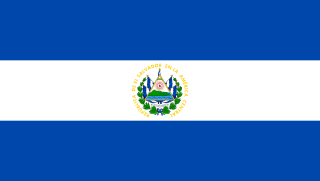
El Salvador – sovereign country located on the Pacific Coast of Central America. The area was originally called by the Pipil "Cuzhcatl", in Spanish "Cuzcatlan", which in Nahuatl means "The Land Of Precious Things". After the Spanish conquest, the land was baptized by Spanish conquistadors as "Provincia De Nuestro Señor Jesucristo El Salvador Del Mundo", now abbreviated as "República de El Salvador". The country borders the Pacific Ocean between Guatemala and Honduras. With a population of approximately 5.8 million people, it is the most densely populated nation in Central America and is undergoing rapid industrialization.
The Central American and Caribbean Junior Championships is a junior athletics competition held between the nations of Central America and the Caribbean Islands promoted by the Central American and Caribbean Athletic Confederation (CACAC). It is divided into the Junior B Central American and Caribbean Junior Championships held since 1978 and the Junior A Central American and Caribbean Junior Championships held since 1974. The Junior A category was open for girls and boys aged 17–20 until 2010. and for girls and boys aged 18–20 starting in the year 2012. The Junior B category was open for girls and boys aged 14–16 until 2010. and for girls and boys aged 14–17 starting in the year 2012.

This is an Index of Central America-related articles. This index defines Central America as the seven nations of Belize, Costa Rica, El Salvador, Guatemala, Honduras, Nicaragua, and Panama.
The 2002 Central American and Caribbean Games were held in San Salvador, El Salvador from 27 November through 7 December 2002. The defending champion Cuban national baseball team did not come, citing security concerns.
Pamela Benítez is a female swimmer from El Salvador. She was the country's flagbearer in the Open Ceremonies of the 2010 Central American and Caribbean Games.

Estadio Nacional Jorge "Mágico" González is a football stadium in San Salvador. It is named after Salvadoran star player Mágico González. The stadium has a capacity of 35,000 and was previously known as "Estadio Nacional Flor Blanca", referring to the name of the San Salvador neighborhood where it is located.

The Central American and Caribbean Athletic Confederation (CACAC) is a confederation governing body of athletics for national governing bodies and multi-national federations within Central America and the Caribbean. Membership of the Confederation is open to all national governing bodies for the sport of athletics in any country or territory in the region which is affiliated to World Athletics. Other countries may be granted observer status and may, with permission of the Congress, be allowed to compete in open championships. They will, however, not be entitled to vote at the Congress.
The Central American and Caribbean (CAC) Age Group Championships is an international track and field athletics event for the youngest athletes organized by the Central American and Caribbean Athletic Confederation (CACAC). The CAC Age Group Championships started in 1985 in Curaçao and are held every two years. The intention was for athletes at that age to have experiences with a variety of events at that young age. It has witnessed the international debut of many future stars of the region such as Olympic and World Championship medalist Debbie Ferguson of the Bahamas and 2003 World 100m champion Kim Collins of St Kitts and Nevis.
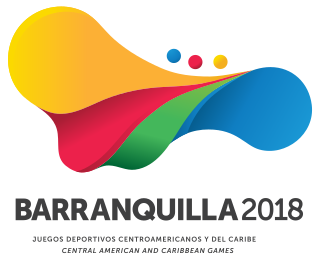
The 23rd Central American and Caribbean Games were held in Barranquilla, Colombia.
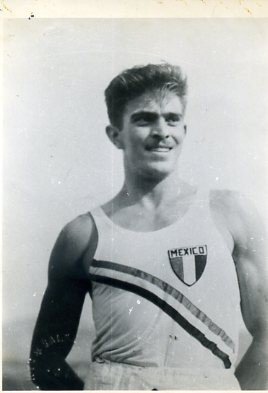
Carlos de Anda Dominguez was a Mexican accomplished sprinter who competed internationally, eventually reaching the 1932 Summer Olympics, and qualifying for the 1936 Summer Olympics.
The Federacion Salvadoreña de Atletismo is the governing body for the sport of athletics in El Salvador.

The 24th Central American and Caribbean Games are scheduled to take place in 2023. They were planned to take place in Panama City, Panama, until the government announced on 24 July 2020 that it had decided to withdraw as the hosts as a result of the COVID-19 pandemic in Panama. Centro Caribe Sports had search for alternatives. In May 2021 San Salvador, El Salvador was chosen to replace Panama City as main host city,as due to infrastructure and schedule issues 7 sports were relocated to Santo Domingo, in Dominican Republic.